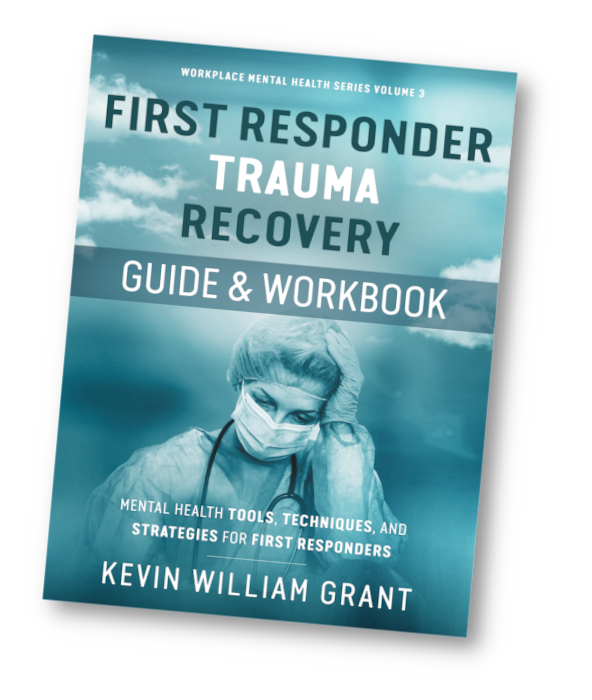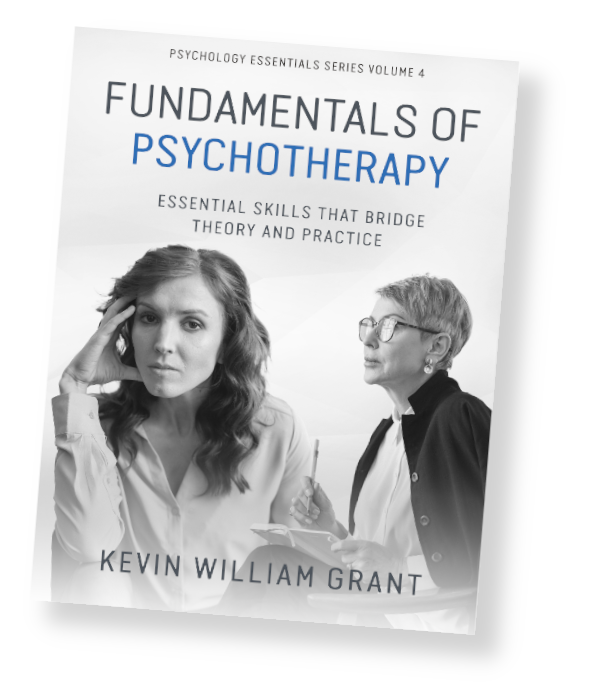The Benefits of Cognitive Behavioral Therapy
Cognitive Behavioral Therapy (CBT) is a form of psychotherapy that is designed to help individuals change unhelpful or harmful thoughts, feelings, and behaviors. CBT is evidence-based, which means it has been researched extensively and found to be effective for a wide range of mental and behavioral health issues. Some of the many benefits of CBT include:
-
Structured Approach: The structured nature of CBT allows progress to be easily tracked. This can encourage individuals as they can witness their advancement and transformation.
-
Evidence-Based Treatment: Numerous studies have shown CBT to be effective for various disorders, including depression, anxiety disorders, obsessive-compulsive disorder, and many others.
-
Short-Term & Goal-Oriented: CBT is typically considered a short-term therapy, often lasting anywhere from several weeks to several months, depending on the issue being treated. Sessions are structured and focused on specific goals.
-
Skills-Based: CBT equips individuals with practical skills to manage their mental health. These skills can be applied in everyday life and can be useful long after therapy has ended.
-
Versatility: CBT can be tailored to suit individual needs and can be delivered in individual, group, couple, or family formats. It can also be adapted for self-help and online interventions.
-
Teaches Self-Reliance: One major aim of CBT is to help individuals become their own therapists. By learning how thoughts, feelings, and behaviors are interconnected, individuals can start to manage their own symptoms.
-
Combination Therapy: CBT can be effectively combined with medication, providing a comprehensive approach to treatment for certain disorders.
-
Focus on Present: While CBT does consider past experiences and their role in shaping thought patterns, its primary focus is on current thoughts and behaviors. This can be particularly helpful for those looking for strategies to address immediate concerns.
-
Addresses Underlying Thought Patterns: CBT helps individuals recognize and challenge distortive thinking patterns, which can be at the root of many psychological disorders.
-
Increased Self-Esteem and Confidence: CBT can lead to increased self-worth and a more positive self-image by addressing negative self-talk and behaviors.
Why Cognitive-Behavioral Therapy Works
Cognitive Behavioral Therapy (CBT) addresses the interplay between thoughts, feelings, and behaviors. Maladaptive or dysfunctional thought patterns can often lead to negative feelings and behaviors. By recognizing and challenging these unhelpful thoughts, CBT helps individuals reframe their thinking patterns in a more positive and realistic way. This change in thought patterns can subsequently lead to changes in emotional responses and behaviors, resulting in symptom relief and improved overall well-being.
CBT's structured and goal-oriented nature ensures that individuals actively participate in their healing process. CBT empowers individuals to take control of their mental health by equipping them with practical skills and strategies. This active engagement, coupled with the therapist's guidance, facilitates a deep understanding of one's thoughts and behavior patterns, making it more effective in creating lasting change than passive therapeutic approaches.
-
Thought-Feeling-Behavior Connection: CBT focuses on the interconnectedness of thoughts, feelings, and behaviors. Changing one can influence others.
-
Skills Development: CBT equips individuals with practical tools and strategies to manage their own mental health.
-
Active Participation: Individuals are actively involved in their healing, which fosters ownership and empowerment.
-
Challenges Non-Productive Thoughts: CBT helps identify and counteract negative or distorted thought patterns contributing to emotional distress.
-
Real-life Application: Skills and strategies learned in CBT apply to everyday situations.
-
Feedback Loop: Regular sessions provide opportunities for feedback, allowing adjustments to strategies as needed.
-
Short-Term Focus: While considering past experiences, CBT primarily focuses on current issues and practical solutions.
-
Adaptability: CBT can be tailored to individual needs and delivered in various formats, making it versatile.
-
Encourages Self-Reliance: CBT promotes independence, teaching individuals to become their own therapists over time.
How Cognitive Behavioural Therapy Benefits You

Personal Growth
Learn more about yourself, find out how others perceive you
-
Self-Reflection: CBT sessions often involve introspective exercises that encourage deeper self-understanding.
-
Feedback Mechanism: Therapists provide constructive feedback on how others might perceive one's thoughts and behaviors.
-
Growth Tracking: Regular CBT sessions allow for personal progress and development monitoring.
Safety
A Safe Place to Gain Perspective
-
Non-judgmental Environment: CBT therapists create a safe space where individuals can express themselves without fear of criticism.
-
Structured Approach: The organized nature of CBT ensures that sessions progress in a secure and predictable way.
-
Coping Strategies: CBT teaches skills to manage overwhelming emotions, providing tools to maintain safety during challenging times.
Awareness
The psychotherapy and counselling process will make you aware of your blind spots
-
Thought Identification: CBT emphasizes recognizing negative or distorted thought patterns that might have previously gone unnoticed.
-
Mindfulness Techniques: Some CBT practices incorporate mindfulness to enhance self-awareness and present-moment attention.
-
Behavioral Insights: CBT helps individuals identify triggers and behavioral patterns in response to specific situations or emotions.
Transformation
Engage in a Powerful Transformational Process
-
Reframing Thoughts: CBT offers tools to challenge and change unhelpful beliefs and thought patterns.
-
Skills Acquisition: CBT provides practical strategies for managing stress, anxiety, depression, and other emotions.
-
Lasting Change: With consistent practice, CBT can lead to long-term transformation in how individuals perceive and react to challenges.

The Process
Cognitive Behavioral Therapy (CBT) is a transformative approach designed to reshape how we perceive and react to life's challenges. CBT offers a structured and collaborative journey toward mental wellness by fostering powerful personal growth and lasting emotional resilience.
Assessment and Identification
The process begins with a thorough assessment. During this initial phase, the therapist and client work together to identify problematic thought patterns and behaviors. This collaborative effort is crucial, laying the foundation for the therapeutic work to follow. By pinpointing specific cognitive distortions and maladaptive behaviors, the therapist can tailor the treatment to address the client's unique needs.
Strategies and Techniques
Once problematic patterns are identified, the therapist introduces specific strategies and techniques to help the individual challenge and modify these patterns. Central to CBT is the belief that our thoughts significantly influence our feelings and actions. Therefore, by changing maladaptive thought patterns, individuals can experience positive emotional and behavioral changes. Techniques such as cognitive restructuring, behavioral activation, and exposure therapy are commonly used to achieve these changes.
Homework and Real-world Application
A unique aspect of CBT is the emphasis on homework assignments. These assignments reinforce the skills learned in sessions and ensure clients can apply these techniques to real-world situations. This practical application is essential for solidifying the therapeutic gains made during sessions. Homework may include journaling, thought records, and behavioral experiments.
Client Participation and Responsibility
The client's active participation is crucial throughout the therapy process. In addition to engaging in therapeutic sessions, clients take responsibility for implementing the learned strategies in their daily lives. This active involvement empowers individuals to take control of their mental health and fosters a sense of ownership over their therapeutic journey.
Mastery and Independence
Over time, as individuals master the cognitive and behavioral techniques introduced in therapy, they become better equipped to handle future challenges independently. This increased self-efficacy not only reduces symptoms but also enhances overall well-being. By developing robust skills, clients can navigate life's challenges with greater resilience and confidence.
Cognitive Behavioral Therapy is a highly effective approach that empowers individuals to transform their thoughts, feelings, and behaviors. Through a structured and collaborative process, clients can achieve lasting personal growth and emotional resilience, ultimately leading to a more fulfilling and balanced life.

University Degrees
Licensing
Life Coaching
Professional Development
Post-Graduate Certificates
References
-
Beck, J. S. (2011). Cognitive behavior therapy: Basics and beyond (2nd ed.). The Guilford Press.
-
Burns, D. D. (1999). The feeling good handbook. Plume.
-
Greenberger, D., & Padesky, C. A. (1995). Mind over mood: Change how you feel by changing the way you think. The Guilford Press.
-
Ellis, A., & Harper, R. A. (1975). A new guide to rational living. Wilshire Book Co.
-
McKay, M., Wood, J. C., & Brantley, J. (2007). The dialectical behavior therapy skills workbook: Practical DBT exercises for learning mindfulness, interpersonal effectiveness, emotion regulation & distress tolerance. New Harbinger Publications.
-
Bourne, E. J. (2010). The anxiety & phobia workbook (5th ed.). New Harbinger Publications.
-
Harris, R. (2008). The happiness trap: How to stop struggling and start living. Trumpeter.



